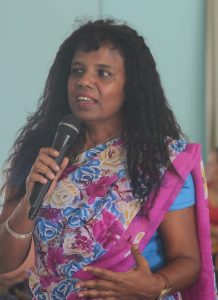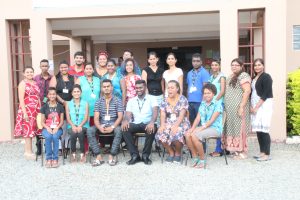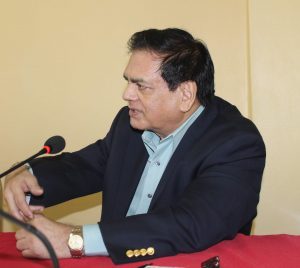UniFiji Plans for COP23
The University of Fiji recognizes the importance of climate change adaptation and mitigation and Fiji’s Presidency at COP23 and has therefore devised a plan in the lead up to COP23 in November.
Ms Priyatma Singh, from the Department of Science at the University of Fiji said that one of the key priorities of the University was to create awareness on the important role of Fijian Government in addressing the vulnerability of Small Island Developing States to Climate related risks.
“As a University our role would be to promote the two major events (COP23 and United Nations Oceans Conference on Sea and Oceans) and create awareness especially since Fiji assumes presidency at COP23 in Bonn, Germany,” she said.
She further stated that the School of Science and Technology plans to hold events on a monthly basis in the lead up to COP23.
“We will try to host small interactive student seminar sessions building up to COP 23 every month beginning from 10th of April. Some of the probable seminar topics discussed would include: Climate Change Reality for Pacific Island Nations – Role of Fijian Government at COP 23 ( To be facilitated by a government official); Oceans & Climate Change -( Facilitators – PIDF and The University of Fiji );Climate Change Research at the University of Fiji – (Facilitators – Department of Science and The University of Fiji PACAM project team); Climate change Adaptation and Mitigation (Facilitators – One of the NGO’s ),” she explained.
The University also had a small presentation last Friday during the World Water Day where we informed University and high school students about COP 23.
Following is a plan initiated by the Department of Science for awareness on COP23:
- The University of Fiji will collaborate with Pacific Islands Development Forum Secretariat to conduct a special public seminar on Oceans and Climate Change on the 28th of April, with the intention of creating public awareness on the United Nations’ SDG 14 and UNFCCC COP 23. Students and other important stakeholders would be invited to attend and their opinions would also be taken into consideration.
- The University would also be creating awareness and hosting special student/community activities at events such as the World Earth day, World Environment day and World Oceans Day.
- The University of Fiji in partnership with McDonald’s Fiji would be conducting a UniFiji -McDonald’s Eco-Contest in July. This year’s Eco-contest will place an even greater emphasis on climate issues in support of Fiji’s Presidency to the COP23 deliberations in Bonn, Germany. In keeping with the core objective of the annual COP meetings; issues such as climate change adaption, mitigation and disaster risk reduction are a few key areas that will be highlighted over the course of the competitions.
![]()



